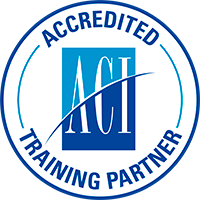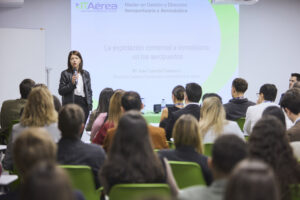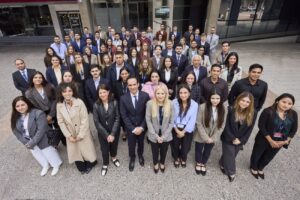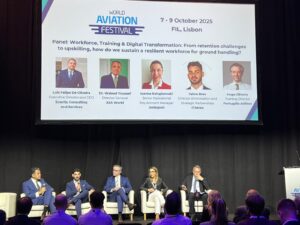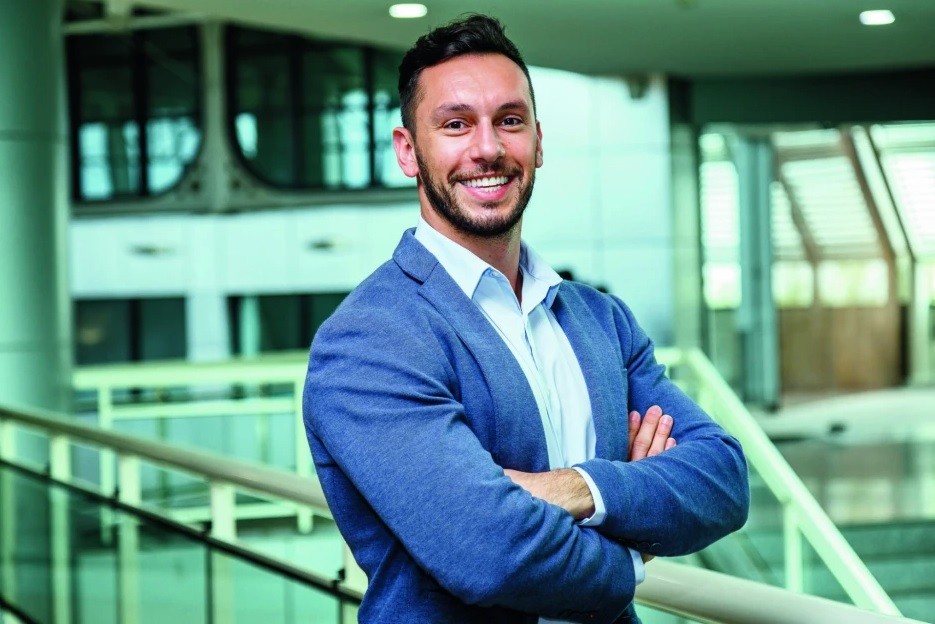
ITAérea interviews Mr. Rodrigo Tavares, Environmental Manager at Salvador Bahia Airport, Brazil
News
Mr. Rodrigo Tavares is an Environmental Manager at Salvador Bahia Airport, within VINCI Airports Group. He is also a postgraduate student and a teacher at ITAérea Aeronautical Business School.
In this interview, Mr. Tavares will provide us with first-hand information on the achievements in environmental management that have given Salvador Bahía Airport the title of most sustainable airport in Brazil.
1)About Salvador Bahia Airport.
ITA: In terms of sustainability, what are the accomplishments you have made?
RT: I’m proud to say that in two years Salvador Bahia Airport was named the most sustainable aerodrome in Brazil, in a recent audit carried out by National Civil Aviation Agency (ANAC), meeting 33 out of 36 criteria mapped and reaching 88,85% of the possible score. VINCI Airports took over Salvador Bahia Airport’s operations in January 2018.
In order to achieve it, Salvador Bahia Airport had developed an Environmental Management System, aligned to the AIRPact, the VINCI Airports Environmental Policy, adopted the Circular Economy concept and broke important paradigms such as:
- The first Brazilian airport zero landfill, what means that 100% of our waste is introduced into productive processes as raw material, not being treated as garbage, but being recycled or converted into energy and cement. When we took over the operation, just 1% of the waste was recycled, while the other 99% was sent to landfill;
- The first zero liquid discharge Airport in Brazil and at VINCI Airports. Our effluent is received and treated by our new Waste Water Treatment Plant (WWTP), that is composed by ultrafiltration membranes and has 99,5% efficiency, transforming 100% of the sewage into water, attending to the reuse water parameters and supplying the airport for no potable purposes, as toilets and cooling towers. By doing it, we reduced the airport potable water consumption in 37% and discharge zero treated effluent into the nature;
- The first Airport with a solar farm in Brazil. We built a 4,2 MW solar farm, able to supply with clean energy 30% of the airport. It has been installed 10.800 solar panels in an area equivalent to three soccer fields. The energy produced is enough to supply around 4.000 houses. The most important positive impact of this project is the reduction of 690 tons of CO2, that represents 30% of the total airport CO2 emission;
- Airports Carbon Accreditation Certification (ACA) Level 1, from ACI, in our first operational year;
- Airports Carbon Accreditation Certification (ACA) Level 2, from ACI, by reducing 6,12% of our Carbon Footprint in our second operational year;
- First zero fireworks airport for fauna management. We had developed and implemented a fauna risk management system, where we eliminated the use of fireworks to frighten the birds and, instead of it, we reduced the attractive sources and developed bird capture no harmful techniques for the different very high, high and medium risk species. As a result, we also reduced the number of bird strikes by 80% and we cataloged 200 species of birds present in the airport site.
- Green Airport Awards, from Airports Council International (ACI-LAC), in 2019
- Advanced Sustainability Seal – ANAC, in 2019.
ITA: Since when have you been working on these projects?
RT: I joined VINCI Airports team in July 2017, six months before the company takes over Salvador Bahia Airport operations on January 2nd, 2018. My main challenges at that moment were to obtain the Environmental permits for the Airport, that were expired for the last 10 years, to define a viable solution for the existing WWTP, that had less than 30% efficiency and was lower than the legislation requirements, to project the new solid waste facility, connecting it to the solid waste operational flow, to study and to plan the remediation of the soil contaminated areas and to remove, according to the circular economy concepts, the 800 ton of waste that were irregularly stored all around the airport.
Since the first moments of the concession, a solid environmental policy was developed and implemented, complying with AIRPact, the VINCI Airports global environment strategy, and I am engaged in these projects since the very beginning. I’d like also to highlight that investments aiming sustainability are included since the bid proposal for auctions, they are part of the business plan of all VINCI Airports’ facilities.
ITA: What part of these projects would you describe as the most difficult?
RT: It was a challenge to change the environmental culture in such a short range of time. Before VINCI Airports took over operations, the facility hadn’t been complying with any of the environmental obligations, such as the mandatory permits. So, engaging the airport community towards sustainability was a very important part of the process.
Each of these projects were really challenging and had its specific difficulties. I think that the most difficult achievement was the award of most sustainable airport in Brazil because this audit assessed all the sustainability pillars of an airport, as water, energy, waste, monitoring, permits, environmental education, fauna management, wastewater, noise emissions, etc and we had to be strong in all of them to reach the highest score. So, it was the addition of all of our projects and environmental management system that made us able to achieve this dream.
2) About the Master in Sustainable Air Transport Management (MATSM).
ITA: You have started studying the Master in Sustainable Air Transport Management (MATSM):
What is your opinion about it?
RT: The Master in Sustainable Air Transport Management really surprised me when I knew about it. My expectations on it were already high, but when José Ignacio, the CEO of ITAérea, presented me the structure of the Master, showing that it was related to the United Nations aims and objectives for 2030 and that it covers the sustainable management specifically in all the air transportation sectors, as Airports, Airlines, Handling, Cargo, Air Navigation, Aeronautical Industry and International Air Law, I was even more excited and motivated to take it.
Another great differential of this MBA is the Alliance between ITAérea and UNITAR (United Nations), issuing the diploma by both institutions and organizing the graduation ceremony at the Palace of Nations, in Geneva, Switzerland.
I’m enjoying a lot the MATSM, its format and the staff quality. The e-learning model permits me to adapt the MBA to my current routine with flexibility.
ITA: In what ways do you think it is useful to other professionals of the sector?
RT: I think it is useful for other professionals to understand the air transport management in a holistic perspective and to have the opportunity to go deeper in all its sectors. Also, the professionals can correlate their activities and functions with sustainability, considering its benefits to the air transport business, improving efficiency and producing a better image, reputation and results for their companies.
I strongly recommend this Master for professionals who want to improve their knowledge about the air transportation and, specially, for those who desire to cause an important positive impact to the world!
ITA: 3) In your opinion, the future ahead is sustainable because…
RT: It is not acceptable anymore to conduce the world without thinking in the sustainability. A company that incorporates sustainable concepts in its culture and policies will be more competitive and more prepared for the market challenges, in addition to being less pollutant, more efficient, to have a better image and reputation and to prepare a better world for the actual and future generations.
In VINCI Airports, we truly believe that environmental commitment is a key to businesses sustainability and it is part of our business strategy. The future goes towards a green economy, not only because the planet shows us that can’t stand the current level of environment impact but also because people are more aware of the importance of preserving natural resources.
CONTACT info@itaerea.com +34 968 966 885 TEACHERS TRAINING
